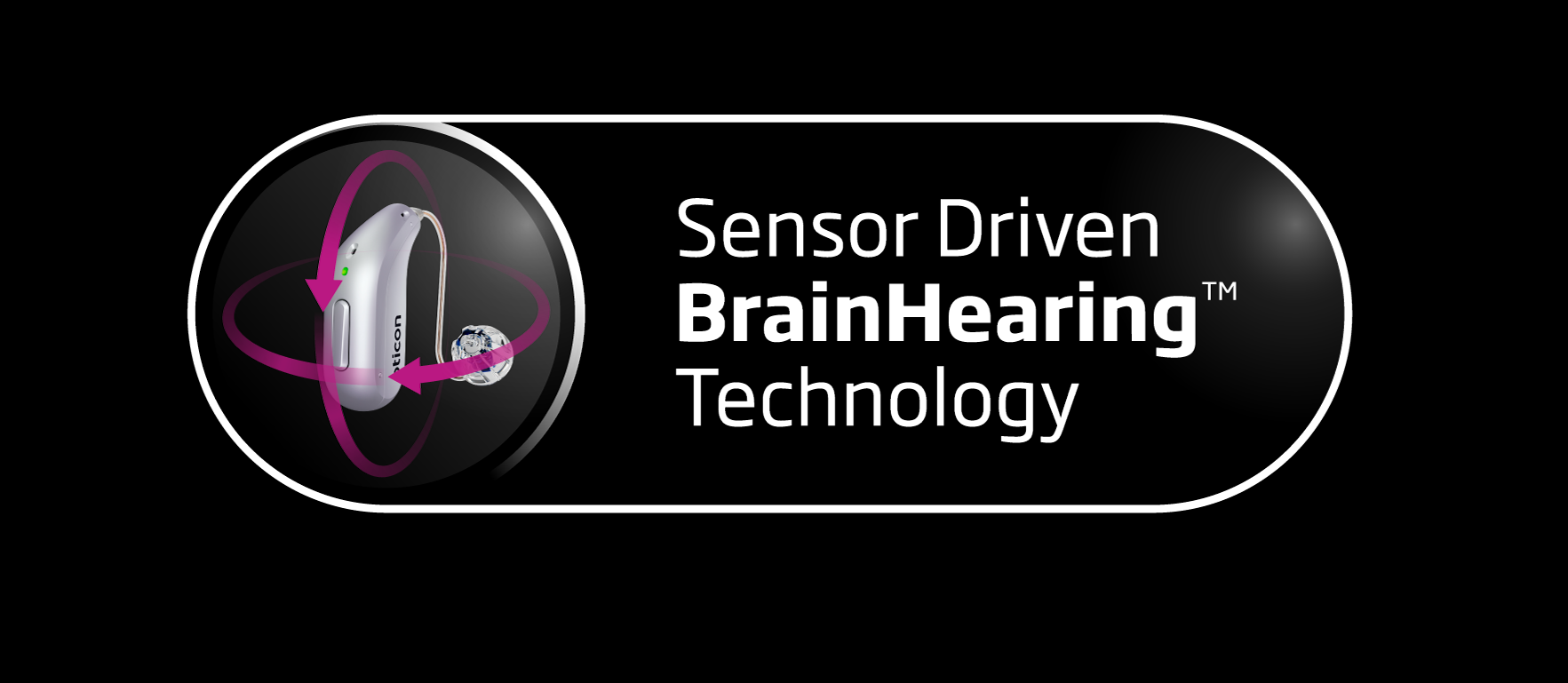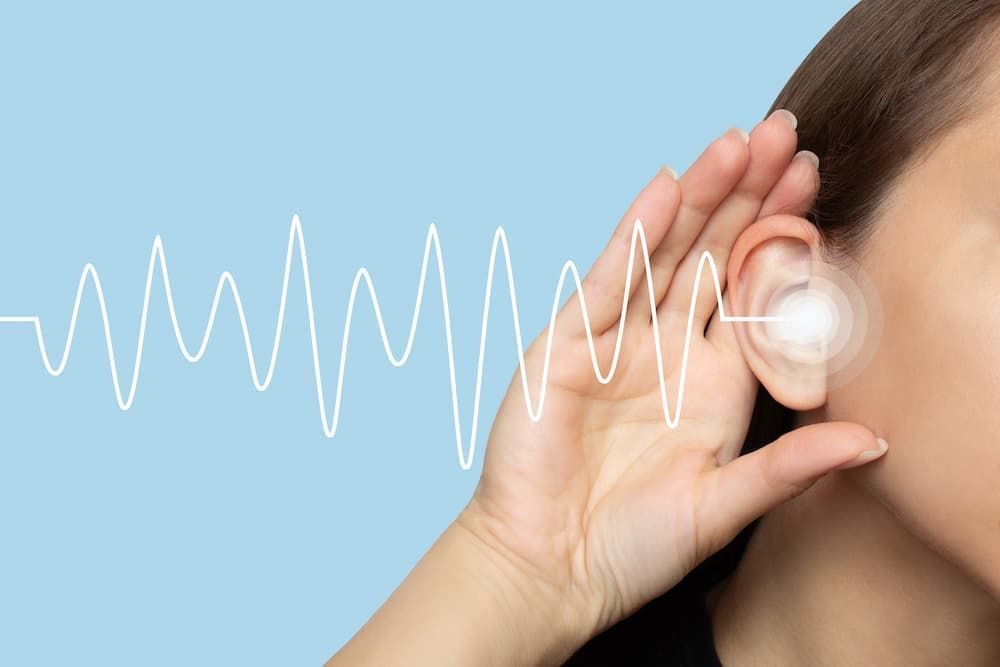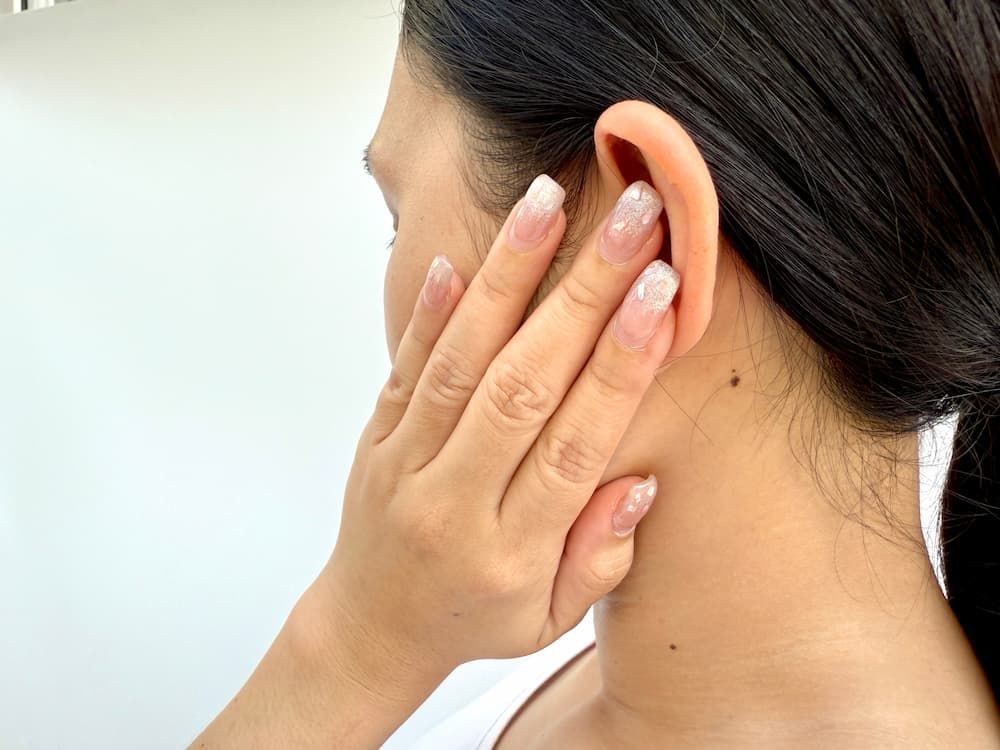Mental Health & Hearing Loss
November 15, 2021

Mental Health & Hearing Loss: How to Help
Recently, my aunt planned a birthday party and invited some of our other family. After two years apart, I was excited to see my aunt and spend quality time with her. My aunt is the type of person who enjoys hosting, cooking, and entertaining. It’s what she lives for. When we arrived, I walked into the kitchen while she was prepping our food and asked, “How’s it going?”
My aunt paused, looked at me, and replied, “Yeah!” She turned back to her work and continued to prep the menu.
Well, that’s not quite the response I was anticipating
. I stepped closer and repeated myself, “How are you doing?” This time, her gaze scanned my eyes and lips.
“Ohhhhh, I’m doing fine!” she responded loudly.
I kept an eye on her for the rest of the day and noticed other disconnects between what people said to her and how she responded. Although she was present, she wasn’t fully aware. I could tell she was straining to follow conversations. When her great-nieces and nephews asked questions, she replied with generic “Mmhmms” and “Isn’t that sweet?” She’d often retreat to the kitchen to “clean up a bit” when she could have been spending time with relatives she hadn’t seen in years.
Our clinic hears these types of stories all too often. Each time, they make me want better for my patients. Our goal is to facilitate better hearing—to open doors of opportunity for our patients. We want them to experience a life full of sound, conversation, and memories. Have you experienced a story like the one above? Do you notice these behaviors in any of your loved ones?
MENTAL HEALTH & HEARING LOSS
As many as one-third of adults over 65 report some form of hearing loss. Hearing loss is one of the most common conditions in older adulthood, ranking as the third most prevalent chronic health condition (Cosh et al. 2018).
Generally, age-related hearing loss begins gradually and might go unnoticed at first. Many times, family members notice small changes before the person with hearing loss becomes aware of the problem. Common actions that demonstrate hearing loss are:
- Increasing the TV volume.
- Asking for repetition frequently.
- Responding with difficulty in noisy situations.
Living with hearing impairment can feel debilitating. It can affect every area of one’s daily life—from hearing the waitress list the specials to understanding the correct amount of money you owe the cashier. Imagine not being able to understand your grandchildren in the backseat or having to frequently ask family, coworkers, or friends to repeat themselves. Hearing and communicating make up so much of our daily rhythm. When our ability to hear is altered, listening becomes exhausting and maybe even embarrassing.
Beyond causing listening fatigue, hearing loss is also associated with mental health disorders. A study conducted in 2018 revealed that patients with untreated age-related hearing loss were almost twice as likely to experience symptoms of depression during their lifetime (Brewster, 2018).
Often, people who cannot hear develop social anxiety, particularly fear of embarrassment. Our patients wonder, “What if I respond incorrectly?” or “What if I annoy them when I ask them to repeat?” This fear of embarrassment causes many people with hearing problems to isolate themselves from the people and activities they love.
Staying at home can lead to social withdrawal and, eventually, changes in one’s mental health and wellbeing. The brain needs auditory input to stay sharp, alert, and active. Without it, pathways in the brain can grow dull. Self-isolating is denying one’s brain a healthy variety of noises and environments.
WHAT CAN YOU DO TO HELP?
Studies have shown that interventions such as auditory rehabilitation (listening exercises) and hearing aids can improve a patient’s ability to access and process sounds—even at the level of the brain! Additionally, researchers have discovered that three months of hearing aid use can decrease symptoms of depression (Cosh et al 2019).
If your hearing is holding you back from participating in life the way you used to, please call us at
480-831-6159
! We want to help you flip the narrative by opening opportunities for you to thrive every day in an exciting (and loud) world. We’d be happy to discuss the challenges you’re facing and offer help. We hope to equip you with the best possible hearing tools to live a life that is full, noisy, and beautiful.
REFERENCES
Brewster, Katharine K., et al. "Age-related hearing loss and its association with depression in later life."
The American Journal of Geriatric Psychiatry
26.7 (2018): 788-796.
Contrera, Kevin J., et al. "Association of hearing impairment and anxiety in older adults."
Journal of aging and health
29.1 (2017): 172-184.
Cosh, Suzanne, et al. "The association amongst visual, hearing, and dual sensory loss with depression and anxiety over 6 years: The Tromsø Study."
International Journal of Geriatric Psychiatry
33.4 (2018): 598-605.
WHO. Mortality and Budren of Diseases. Geneva: World Health Organisation; 2012. 2.
Yueh B, Shapiro N, MacLean CH, Shekelle PG. Screening and management of adult hearing loss in primary care: scientific review. JAMA. 2003;289(15):1976–1985. doi:10.1001/jama.289.15.1976

We’re still surprised how many people have outdated ideas about what hearing aids are like. It’s common for patients to come in expecting large, uncomfortable devices that distort sounds or make everything seem tinny or artificial. In fact, one of the first things many of our patients say is, “I can’t believe how natural everything sounds!” Or they might remark on how comfortable they are to wear. We love pleasantly surprising people!

Hearing aids can improve your quality of life tremendously, but that's if they've been properly fitted -- and if you've received a model that works well with your specific type of hearing loss and your lifestyle. When you choose your hearing aids, you'll encounter a few companies that all offer good products. These four in particular are recommended by our audiologists. ReSound First up is ReSound, which has been helping people with hearing loss since 1943. About the manufacturer ReSound focuses on making sound more natural (the company calls this "organic hearing") while using the latest broadcast technology to bring you clearer sound and more efficient controls. The company also offers accessories that work with TVs to stream sound directly to the hearing aids. Benefits of ReSound ReSound's research and development focuses on making hearing aids as easy to control and as seamlessly integrated into your life as possible. Control the hearing aids via a smartphone app, and get ready to stream TV and radio right to your hearing aids when Auracast technology becomes available. Why We Recommend ReSound ReSound is adding Auracast to its Bluetooth-enabled Nexia hearing aids, which will enable you to receive TV and radio broadcasts directly to your hearing aids. The Nexia is suitable for mild to profound hearing loss. ReSound hearing aids also use Bluetooth Low Energy Audio, which preserves battery life and provides better sound. Oticon Next is Oticon, which has been around in one form or another since 1904. The company first used the Oticon name in 1946. About the manufacturer Oticon's roots lie in one Danish man's contract with an English hearing aid company to distribute hearing aids in Denmark. Over the decades, that contract grew into a full-fledged, family-owned hearing aid manufacturer with worldwide distribution. Benefits of Oticon Oticon's focus over the past several years has been on technology that allows for better connectivity along with sound technology that works to fill in gaps, rather than just amplify. Why We Recommend Oticon Oticon's hearing aid models have had internet and mobile phone connectivity for almost a decade. One of its latest models, the Intent, has AI-driven sensors that predict your hearing assistance needs in real time, adjusting to the situation you're in instead of giving you fixed amplification levels that may not work in every situation. The Intent is suitable for mild to severe hearing loss and also works with Auracast and Bluetooth LE technology. Phonak The third company on the list is Phonak, which has been around since 1947. About the manufacturer Phonak is a Swiss company that has consistently worked to improve its hearing aids in ways you never knew you needed, such as having the first water-resistant hearing aid housing for aids for severe hearing losses. Phonak is owned by Sonova, which also makes the Sennheiser brand of audio and recording accessories. Benefits of Phonak Phonak offers a very broad range of hearing aids and also produces the Roger wireless microphone. This helps hearing aid users overcome ambient noise -- no matter what their level of hearing loss -- so that speech is clearer even in very noisy situations. Why We Recommend Phonak Phonak's Naida Lumity is not only Bluetooth-enabled, but it also uses Phonak's SmartSpeech technology to zero in on speech as ambient noise levels change. Sensors locate the dominant speech in a room and direct microphones toward the sound, and the technology enhances speech cues to provide more information about what's being said. Starkey Last, but not least, is Starkey, an established U.S. company that's been in business since 1967. About the manufacturer Starkey started off as a hearing aid repair company in Minnesota. Over the years, the company has launched innovative programs for hearing education, battery recycling, and hearing aid testing. Benefits of Starkey The company has long been a leader in customer service, starting with fixed charges for repairs and adding trial periods and warranties, which were not typical at the time Starkey started offering them. The company was the first to design in-the-canal aids with its Tympanette model. It's also designed with advanced digital and programmable lines of hearing aids. Why We Recommend Starkey Starkey recently released the Edge AI hearing aid series that offers speech enhancement, rechargeable batteries, and Bluetooth LE technology. The Edge AI series works with all levels of hearing loss. Find the Right Hearing Aid for You The sheer number of hearing aid companies, let alone the sheer number of hearing aids, can be intimidating for anyone. Dr. Allen Rohe and Amy Rohe at the Tinnitus & Hearing Center of Arizona in the Phoenix-Mesa metropolitan region can help you find hearing aids that work best for you. Contact us to arrange for a consultation to discuss testing and fitting for your needs. Image Souce: Janeberry /Shutterstock









